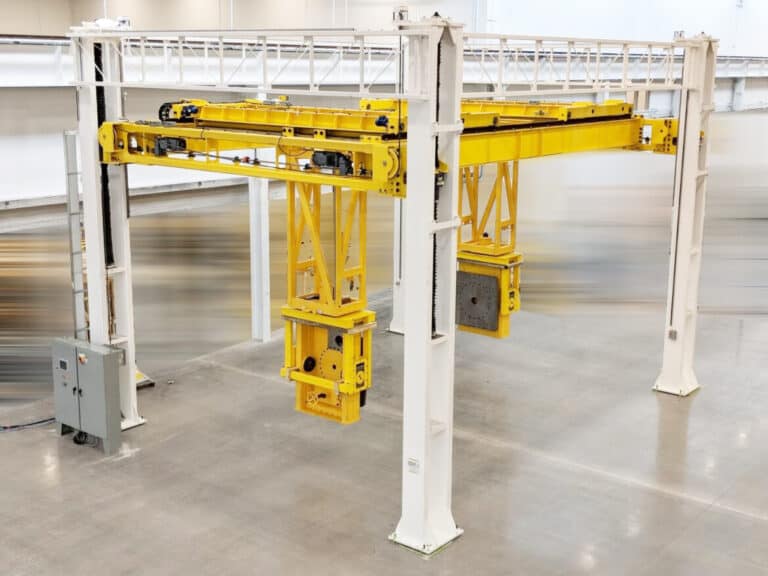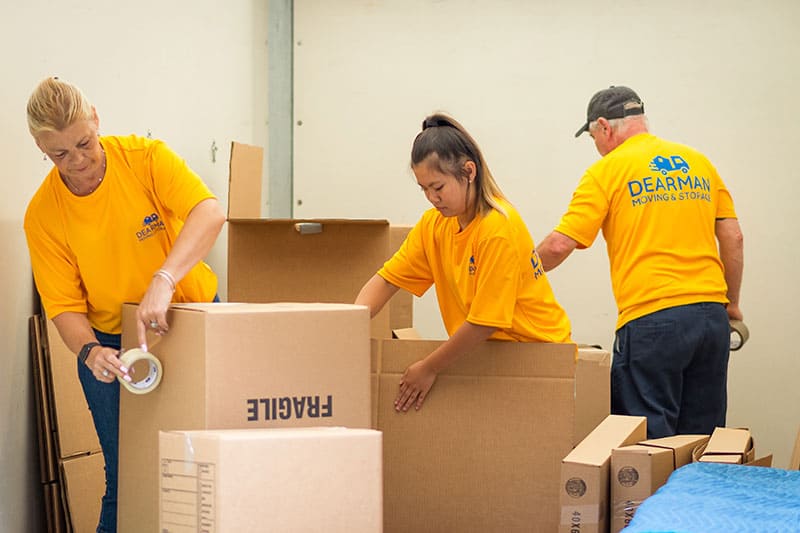Recognizing the Inclusions of moving and Freight Forwarding worldwide of International and residential Shipping
Guiding via the complexities of moving and Freight forwarding can be tough. Both processes include distinctive procedures and demands that are crucial for effective transport. Understanding the distinctions in logistics, documentation, and threat monitoring is essential for organizations and individuals alike. This understanding can significantly influence the efficiency and security of deliveries. Numerous are uninformed of the details parts that affect the total experience and outcomes. What elements should one think about to assure a smooth transition?
The Fundamentals of moving and Freight Forwarding
moving and Freight forwarding are essential parts of the international logistics industry. They assist in the transfer of products and individual items throughout domestic and worldwide boundaries. moving mostly involves the relocation of people or households, incorporating property and industrial requirements. It generally includes packaging, packing, transferring, and unboxing products at the destination. On the other hand, Freight forwarding is focused on the delivery of goods, typically wholesale, making use of numerous transportation modes, such as sea, air, or land.freight forwarders function as intermediaries, coordinating logistics to assure prompt delivery while maneuvering through facility guidelines and customs procedures. Both procedures call for mindful preparation, organization, and interaction to ensure efficiency and reduce interruptions. Comprehending these fundamentals is essential for anyone included in logistics, as they lay the foundation for advanced elements of delivery and transportation monitoring.
Secret Components of Freight Forwarding Services
Freight forwarding services incorporate numerous essential parts that ensure smooth transportation of goods. Trick duties of Freight forwarders consist of handling logistics, working with shipments, and managing custom-mades clearance. Furthermore, comprehending vital shipping documents is essential for compliance and reliable motion of cargo.
Freight Forwarder Responsibilities
A trustworthy Freight forwarder plays an important function in working with the transportation of items, making certain that shipments are taken care of successfully and in conformity with guidelines. Their obligations include various key tasks, including choosing optimal transportation paths, discussing Freight rates, and managing logistics. They act as intermediaries in between carriers and providers, guaranteeing that freight is effectively packaged and labeled for risk-free transit. Furthermore, Freight forwarders track shipments, providing updates to clients about the status and anticipated distribution times. They likewise examine and manage threats related to transport, advising insurance policy options as needed. By helping with communication and documentation, Freight forwarders streamline the shipping procedure, minimizing prospective delays and enhancing general supply chain effectiveness.
Shipping Documents Basics

Comprehending Custom-mades Clearance and Documents
Exact documentation is vital in the customizeds clearance process, as it guarantees conformity with different regulations. An introduction of customizeds guidelines highlights the complexities faced by carriers and Freight forwarders. Usual clearance challenges can greatly impact delivery timelines and expenses, making understanding this aspect essential for efficient logistics.
Value of Accurate Documentation
Steering with the intricacies of international delivery needs a keen understanding of customizeds clearance and the essential role of documents. Accurate documents is vital for making sure that shipments conform with policies and reach their locations without hold-ups. Correctly prepared documents, including bills of lading, industrial billings, and packaging lists, help with smooth interactions with personalizeds authorities. Errors can cause shipment hold-ups, penalties, or even confiscation of items. Furthermore, extensive documentation aids in monitoring shipments and resolving disagreements. Companies engaged in moving and Freight forwarding must prioritize meticulous documentation practices to navigate the elaborate landscape of worldwide shipping efficiently. This persistance not just improves operations yet also boosts consumer fulfillment by making sure prompt delivery.
Custom-mades Rules Review
Steering custom-mades policies is a crucial aspect of global trade that straight influences the success of moving and Freight forwarding procedures. Reliable customs clearance requires an understanding of various guidelines, including tariffs, duties, and import/export restrictions. Precise documentation is essential, as it assures compliance with lawful requirements and facilitates the effective activity of products throughout borders. Trick files often consist of commercial billings, packaging listings, and costs of lading, which offer thorough info concerning the shipment. In addition, personalizeds brokers play a vital role in steering complicated regulations, acting as middlemans between shippers and custom-mades authorities. By preserving extensive expertise of customs procedures, businesses can considerably minimize hold-ups and decrease costs connected with worldwide delivery.
Usual Clearance Obstacles
Numerous challenges can arise during the custom-mades clearance procedure, usually complicating the motion of products across borders. One significant problem wants documentation, which can lead to delays and charges. Exporters and importers must ensure all needed paperwork, such as invoices, packaging checklists, and certifications of beginning, is complete and accurate. In addition, discrepancies in valuation can trigger scrutiny from customs authorities, leading to additional tasks or assessments. Language obstacles may also pose challenges, as miscommunication can bring about misconceptions relating to policies. Furthermore, changes in personalizeds guidelines can create complication, requiring consistent caution by shippers. Inevitably, conquering these clearance tests requires thorough prep work and a clear understanding of customizeds needs to help with smooth global transactions.
Product Packaging and Identifying Requirements
Although often forgotten, product packaging and labeling requirements play a crucial function in the shipping procedure, making sure that products are secured and easily recognizable throughout their trip. Proper packaging safeguards products from damage during transit, while likewise promoting reliable handling and storage space. Using appropriate materials, such as bubble cover, foam, or sturdy boxes, can prevent breakage and loss.Labeling is equally crucial. Precise and clear labels communicate important details, consisting of the location, managing guidelines, and materials. Labels must adhere to regulations specific to domestic and global delivery, which might include hazardous materials identification or personalizeds declarations.Moreover, standard labeling practices streamline the tracking process and enhance general logistics effectiveness. By adhering to product packaging and labeling demands, companies minimize the threat of delays, damage, or misdelivery. Inevitably, these methods contribute greatly to the success of moving and Freight forwarding procedures, making sure a seamless delivery experience for all celebrations involved
Tracking Deliveries: Value and Techniques
Effective product packaging and labeling established the structure for effective shipment administration, however tracking deliveries is just as necessary in the shipping process. Shipment tracking offers real-time exposure, which aids customers and companies keep an eye on the progression of their products. This openness improves client complete satisfaction, since clients can remain informed regarding distribution timelines and any prospective delays.Several approaches help with reliable tracking. Barcode scanning is a typical technique, utilizing distinct identifiers to check packages throughout their journey. In addition, GPS innovation enables accurate place monitoring, enabling timely updates and enhanced logistics administration. Several shipping companies now supply electronic platforms and mobile applications that offer individuals with very easy access to tracking information.The importance of shipment monitoring can not be overemphasized; it reduces the danger of shed or damaged products, boosts operational efficiency, and fosters count on between recipients and shippers. Therefore, integrating effective tracking methods is vital for successful domestic and worldwide delivery procedures.
Insurance policy Options for Your Item

Safeguarding insurance policy for items en route is a crucial consideration for people and organizations alike. Insurance policy alternatives vary based on the sort of delivery, worth of items, and specific dangers included. Typical types consist of provider liability, which covers loss or damages while in transportation, and full-value insurance coverage, offering substantial protection for the total worth of the goods.Shippers may also consider aquatic insurance policy for international shipments, safeguarding against dangers connected with sea transport. It is crucial to examine the particular demands of the shipment and review the terms and conditions of any type of policy.Furthermore, comprehending exemptions and limitations is essential to prevent possible spaces in coverage. Carriers ought to involve with insurance policy specialists to discover customized remedies that fit their unique scenarios. Ultimately, buying the appropriate insurance policy can minimize economic dangers and offer peace of mind during the delivery process.
Selecting the Right moving and Freight Forwarding Service
When choosing a relocating and Freight forwarding solution, it is essential for people and businesses to meticulously evaluate their specific needs and priorities. Elements such as the volume of products, destination, and timeline play a considerable function in this decision-making process. Investigating different carriers is advisable; contrasting their solutions, rates, and client evaluations can disclose useful insights.Additionally, it is essential to take into consideration the experience and proficiency of the provider in managing certain sorts of freight, specifically for worldwide deliveries that might entail custom-mades clearance. Openness in pricing, including any kind of covert charges, ought to likewise be scrutinized.Furthermore, evaluating the degree of client support offered is essential, as prompt communication can mitigate concerns during transportation (freight shipping). Verifying the schedule of insurance coverage alternatives ensures that goods are shielded throughout the shipping procedure. By taking these companies, actions and people can make enlightened choices that line up with their logistics requirements
Frequently Asked Concerns
What Sorts Of Product Can Be Shipped Globally?

How Do Delivery Costs Vary In Between Different Providers?
Delivering costs vary greatly in between service providers due to aspects such as solution speed, cargo type, range, and added services provided. Each service provider's rates model shows these variables, affecting total shipping expenses for consumers.
Can I Ship Hazardous Materials or Perishables?
Shipping harmful products and perishables undergoes strict policies. Service providers typically call for specific product packaging, labeling, and documentation. Shippers have to ensure conformity with neighborhood and international legislations to prevent fines and assure secure transportation.
What Should I Do if My Delivery Is Postponed?
When confronted with a shipment delay, one ought to first get in touch with the provider for updates. Then, evaluate any type of notices got, evaluate alternate options, and maintain all events educated concerning the scenario to decrease disruptions.
Are There Weight Purview for Delivery Containers?
Weight limitations for shipping containers vary depending upon variables like container dimension and shipping policies. Generally, basic containers have a maximum gross weight of around 30,000 to 32,000 kilograms to assure risk-free transportation and handling. In contrast, Freight forwarding is concentrated on the shipment freight shipping of products, typically in bulk, using various transport modes, such as land.freight, sea, or air forwarders act as middlemans, coordinating logistics to ensure timely shipment while maneuvering via complicated laws and custom-mades procedures. Secret obligations of Freight forwarders consist of handling logistics, coordinating deliveries, and dealing with personalizeds clearance. A trustworthy Freight forwarder plays a vital duty in coordinating the transportation of products, making certain that shipments are taken care of efficiently and in conformity with policies. Reliable packaging and labeling established the foundation for effective shipment monitoring, but tracking deliveries is equally crucial in the shipping procedure. Numerous shipping companies now use electronic platforms and mobile applications that offer customers with easy access to tracking information.The relevance of shipment monitoring can not be overemphasized; it minimizes the threat of lost or harmed products, improves functional effectiveness, and promotes trust fund between recipients and carriers.